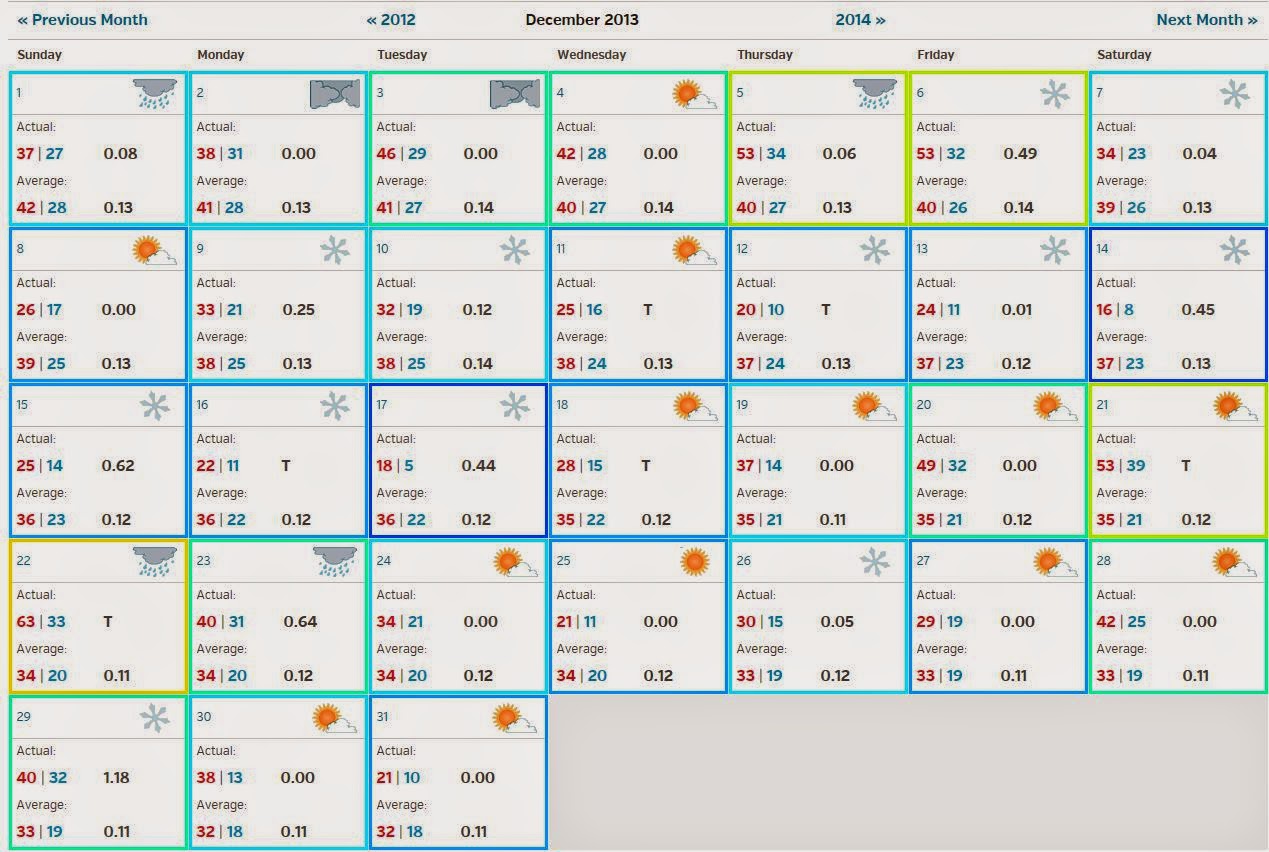If we follow last years trends, we'll have another cold January and February.
December felt like a relatively warm month, especially over the past couple of days with temperatures almost hitting 60 on Christmas. New Englander's were warned that we would have a colder and snowier than average winter, right now it doesn't look like it. When we compare last year's December to this year's, we're following a similar pattern set out from last year.
This December so far has been warmer than 2013's, we still have about a week left to get us right on par with 2013 but it doesn't look like we'll get as cold. In the five days that we've officially been in winter only one day's high stayed below freezing, the 21st. The 24th and 25th this year were uncharacteristically warm, when compared to the 34 and 21 degrees that we had last year. However in 2013, winter welcomed us with a balmy 53 and 63 degree days on the 21st and 22nd respectively.
As a whole December 2014 has been warmer than last year, most weather reports are still calling for a colder than average winter. We should expect that the majority of January, February and March will be below 22, 23, and 29 as an average. We all remember those stretches when the polar vortex hit and we could barely escape single digit temperatures.
Right now we don't know if or when we'll experience another polar vortex. When forecasters say that we'll have a below average winter in terms of temperature it might not mean that we'll see as low of temperatures but that as a whole the winter will be colder.
Last winter, we didn't hit the cold stride until half way through January and didn't really see the end of the really cold winter until March 8th. During this stretch 70% of the days the high temperature was below freezing and only one day did we see the low temperature above freezing.
With a December last year following a similar pattern to the December that we're having right now, last year is a good blue print for when we'll experience cold temperature. 2014 December has been warmer, but it is still following the same trend that was set last year. December will be overall warmer and then transition into a cold January and February.
With a December last year following a similar pattern to the December that we're having right now, last year is a good blue print for when we'll experience cold temperature. 2014 December has been warmer, but it is still following the same trend that was set last year. December will be overall warmer and then transition into a cold January and February.
Author:
Robert Stahelski


Comments
Post a Comment